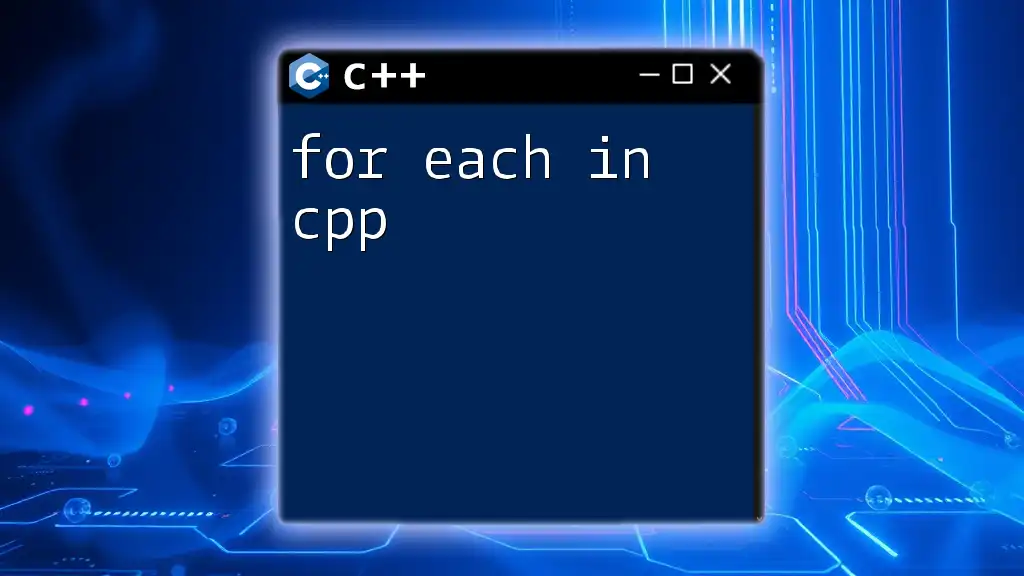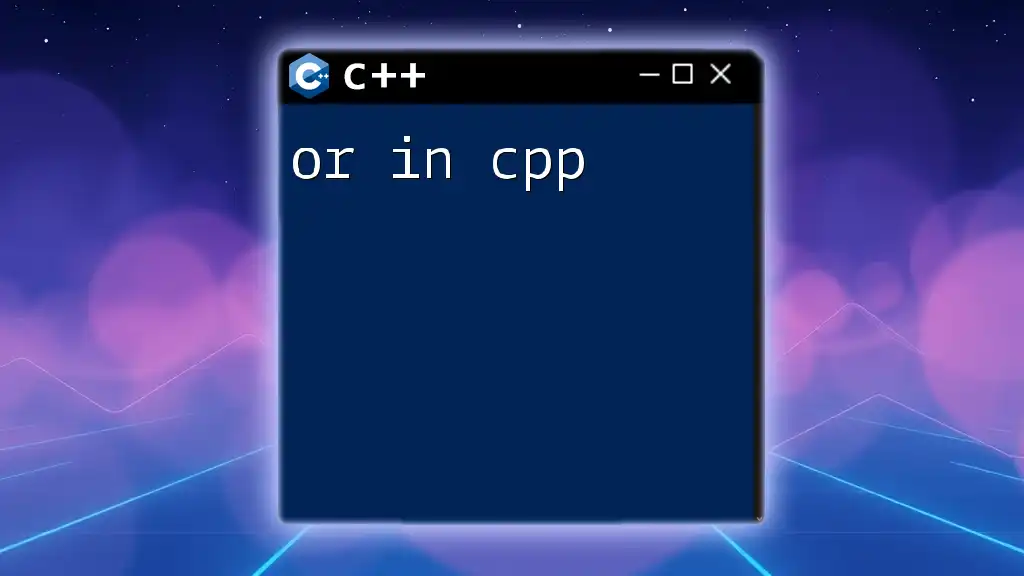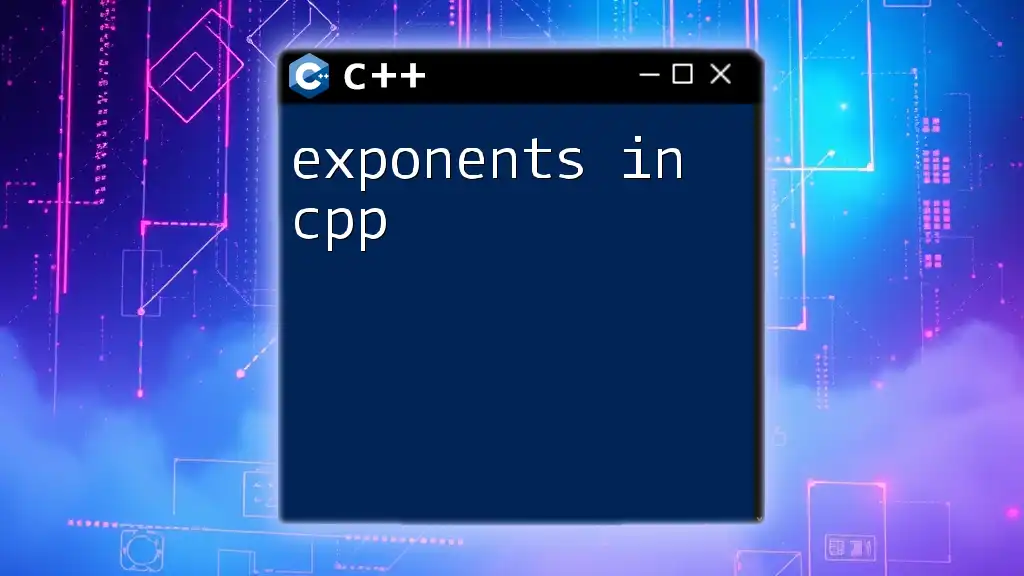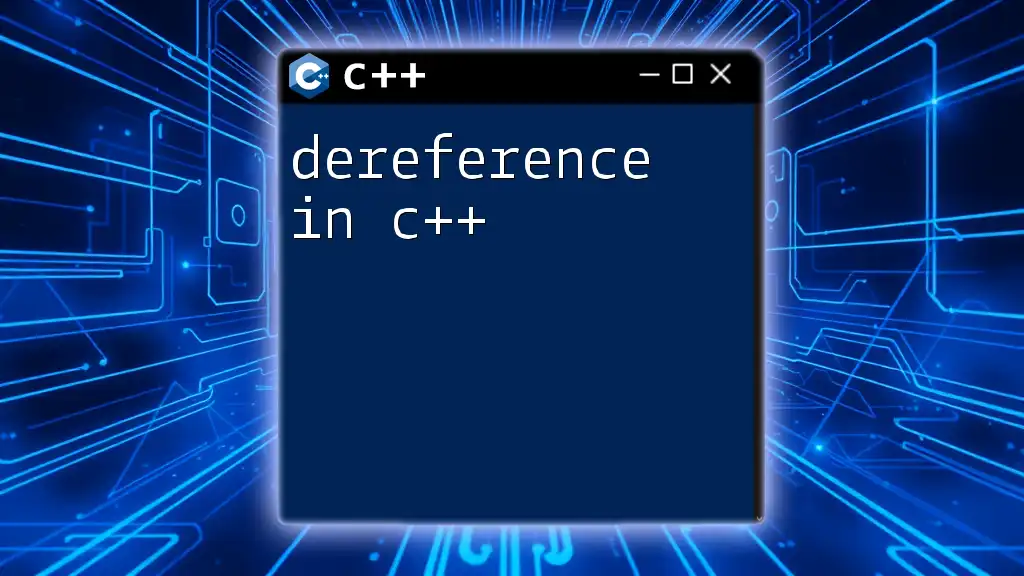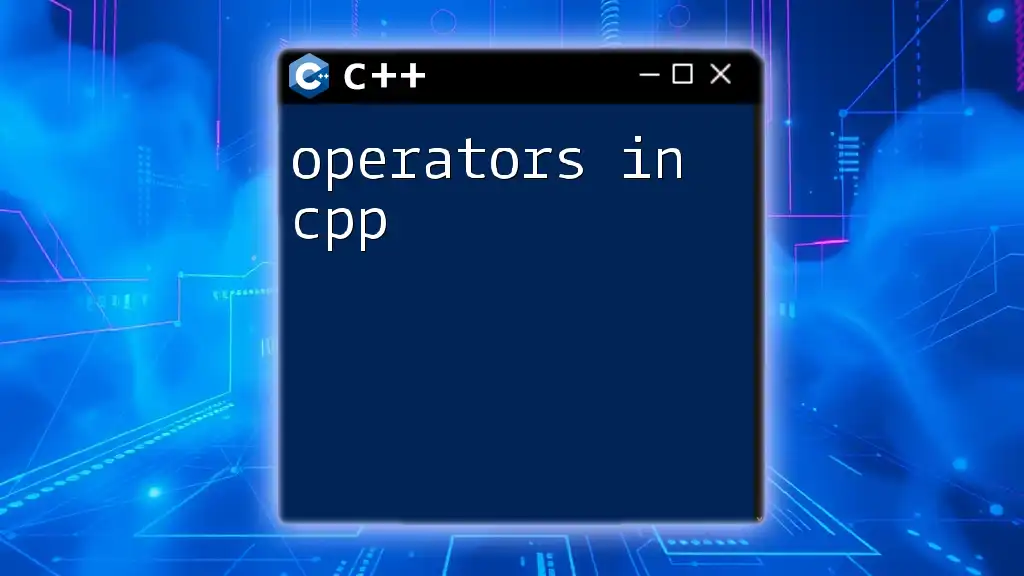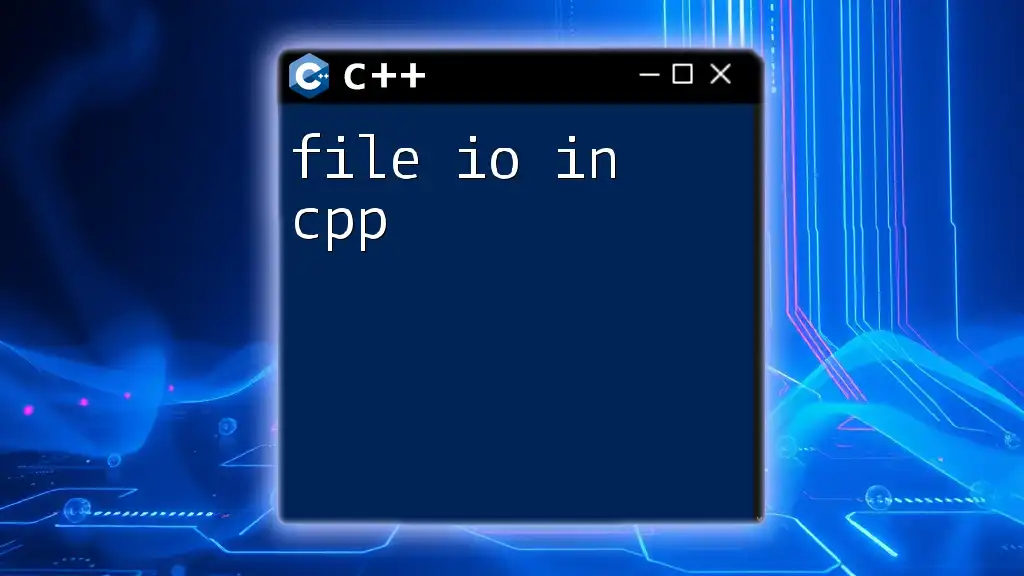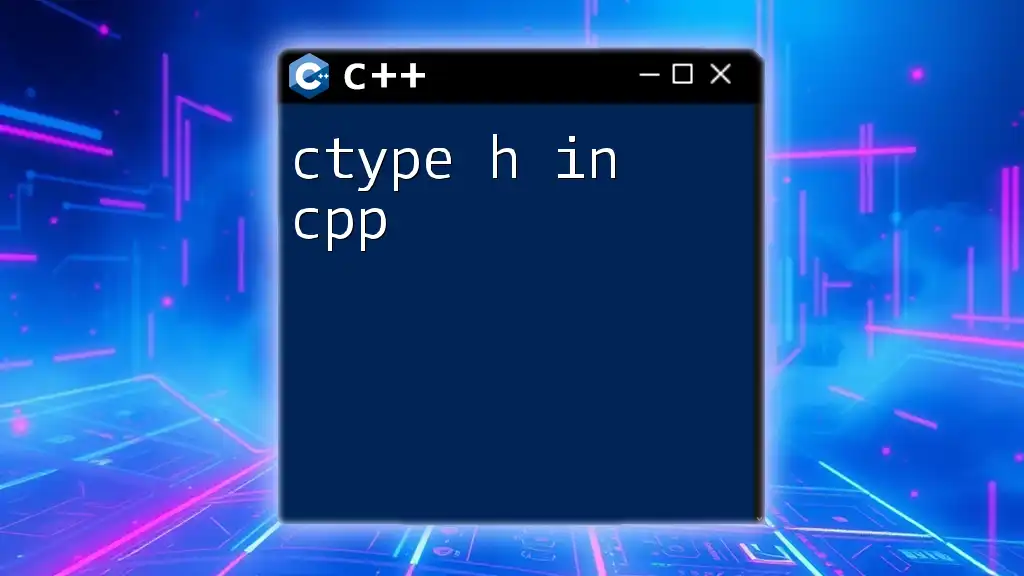The "for each" loop in C++ is used to iterate through elements of a container, such as an array or vector, allowing you to access each element without explicitly managing an index.
Here's a code snippet demonstrating its usage with a vector:
#include <iostream>
#include <vector>
int main() {
std::vector<int> nums = {1, 2, 3, 4, 5};
for (int num : nums) {
std::cout << num << " ";
}
return 0;
}
Understanding Iteration in C++
Iteration is a fundamental concept in programming that allows developers to access and process elements within a collection efficiently. In traditional C++ programming, common methods of iteration involve using loops such as `for` and `while`. While these methods serve their purpose well, they can often lead to verbose code, making it harder to read and maintain. This is where the for each in cpp construct comes into play, providing a clearer, more readable alternative for iterating through collections.

What is For Each in C++?
In C++, the for each loop refers to a specific iteration method that simplifies the process of traversing through elements in collections like arrays, vectors, and maps. Unlike traditional loops that require explicit indexing or iterators, the for each loop allows you to iterate directly over the elements of a collection.
Benefits of Using For Each
Using the for each loop brings several key advantages:
-
Increased Readability: The syntax is straightforward and intuitive, making it easier to understand at a glance what the code is doing.
-
Reduction of Common Errors: With traditional loops, developers may encounter off-by-one errors or index out-of-bounds accesses. The for each loop abstracts away these concerns, as you don't have to manually manage indexes.
-
Improved Performance: In certain scenarios, especially those involving large datasets, for each can lead to optimized performance by reducing overhead caused by unnecessary indexing.
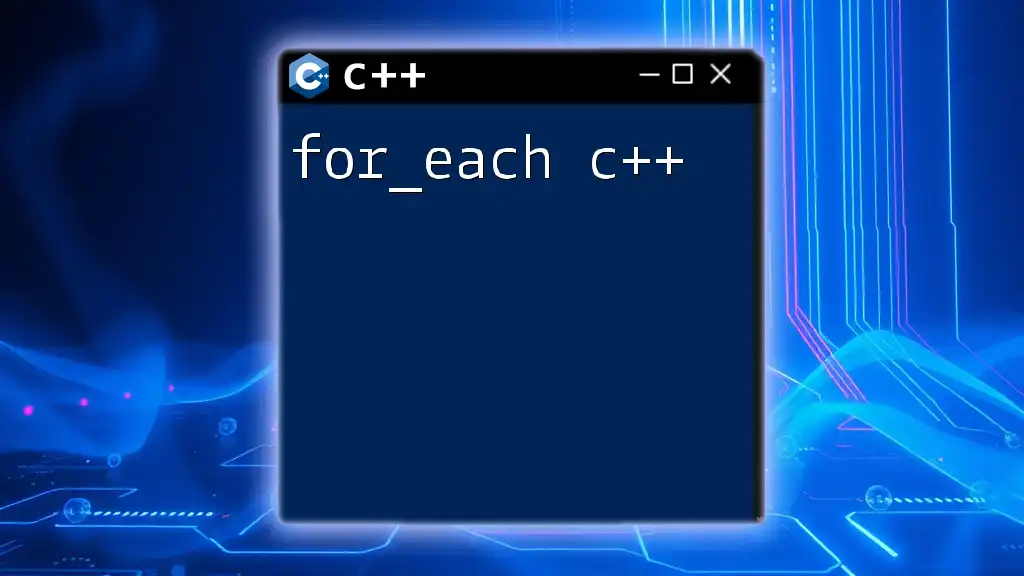
The For Each Loop in C++
Syntax of the For Each Loop
The for each loop utilizes the range-based `for` syntax in C++. The general syntax is as follows:
for (declaration : collection) {
// code to execute for each element
}
Code Example of the For Each Loop
Here’s a simple example demonstrating the for each loop in C++:
#include <iostream>
#include <vector>
int main() {
std::vector<int> numbers = {1, 2, 3, 4, 5};
for (int number : numbers) {
std::cout << number << " ";
}
return 0;
}
In this example, the loop iterates through each element in the `numbers` vector, allowing you to access and print each number directly without managing an index.
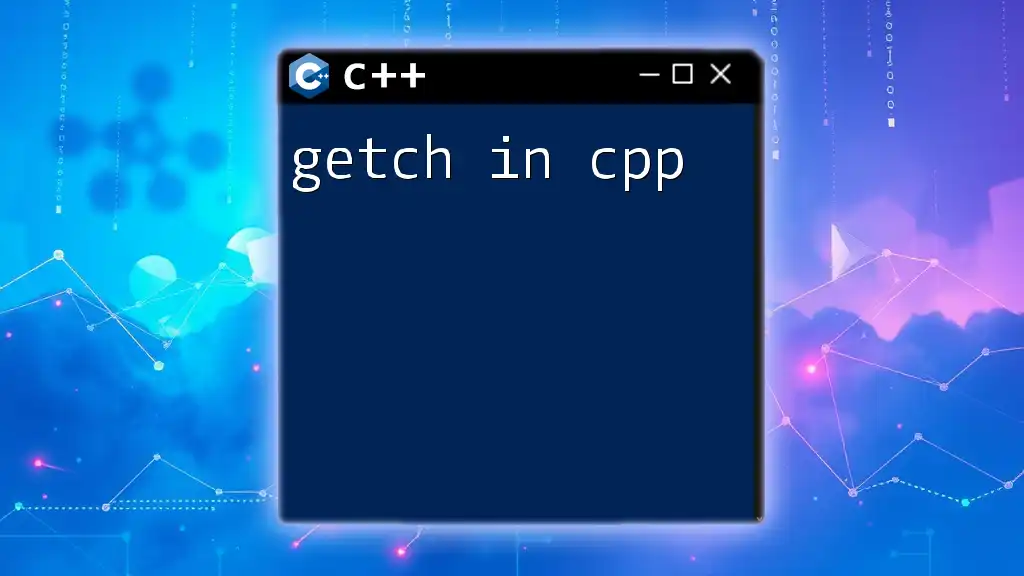
Variations of the For Each Loop
For Each Loop with Different Data Types
The versatility of the for each loop allows it to work seamlessly with various data types. Let’s explore how it can be applied to different containers.
Code Example: For Each with a Map
Consider the scenario where you want to iterate through a map:
#include <iostream>
#include <map>
#include <string>
int main() {
std::map<std::string, int> ages = {{"Alice", 30}, {"Bob", 25}};
for (const auto& pair : ages) {
std::cout << pair.first << " is " << pair.second << " years old.\n";
}
return 0;
}
In this code snippet, the for each loop handles the key-value pairs in a map, using `const auto&` to avoid unnecessary copying while maintaining type safety.
Modifying Elements in a For Each Loop
It’s essential to note that while the for each loop is excellent for accessing elements, modifying elements directly within the loop can lead to complications. If you're attempting to modify the elements of a container during iteration, it's better to use references:
#include <iostream>
#include <vector>
int main() {
std::vector<int> numbers = {1, 2, 3, 4, 5};
for (int& number : numbers) { // Using reference
number *= 2; // Modifying each element
}
for (const int& number : numbers) {
std::cout << number << " "; // Output: 2 4 6 8 10
}
return 0;
}
By using references (`int& number`), we ensure that we are modifying the actual elements of the vector, resulting in the correct output.

Performance Considerations
Comparing For Each to Traditional Loops
When it comes to performance, the for each loop often provides comparable results to traditional loops for most use cases. However, it's essential to consider that, in specific scenarios involving large data sets or complex collections, the optimized syntax of the for each can make the code run faster.
When to Use For Each
You should consider using the for each loop in the following scenarios:
-
When working with standard containers (like arrays, vectors, and maps) where readability and simplicity are priorities.
-
When you aim to minimize the potential for common programming errors related to indexing.
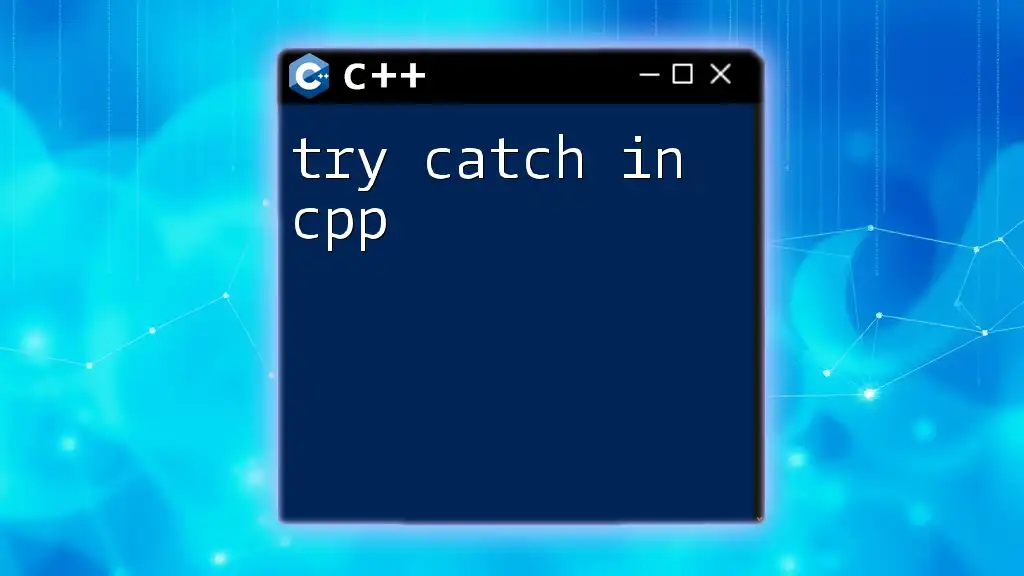
Best Practices for Using For Each
To maximize the benefits of using the for each loop, consider the following best practices:
-
Use const where appropriate: When you're iterating through a collection and don’t intend to modify its elements, use `const` references to prevent accidental changes and improve performance.
-
Prefer auto: Declaring your iterator with `auto` helps to keep your code flexible and reduces verbosity.
-
Keep scope limited: Ensure the variable defined in your for each loop has the smallest possible scope to enhance readability and maintainability.

Conclusion
Incorporating the for each in cpp construct in your programming toolkit can significantly enhance code readability, maintainability, and efficiency. As it simplifies the approach to collection iteration, it's an essential technique that every C++ developer should master. By understanding its syntax, variations, and best practices, you can streamline your code and reduce common programming errors.

Additional Resources
For those looking to dive deeper into C++ collections and iteration techniques, various books, online courses, and community forums are available to further your understanding. Engaging with community platforms like Stack Overflow or joining C++ programming groups can also provide real-time assistance and further resources to explore.
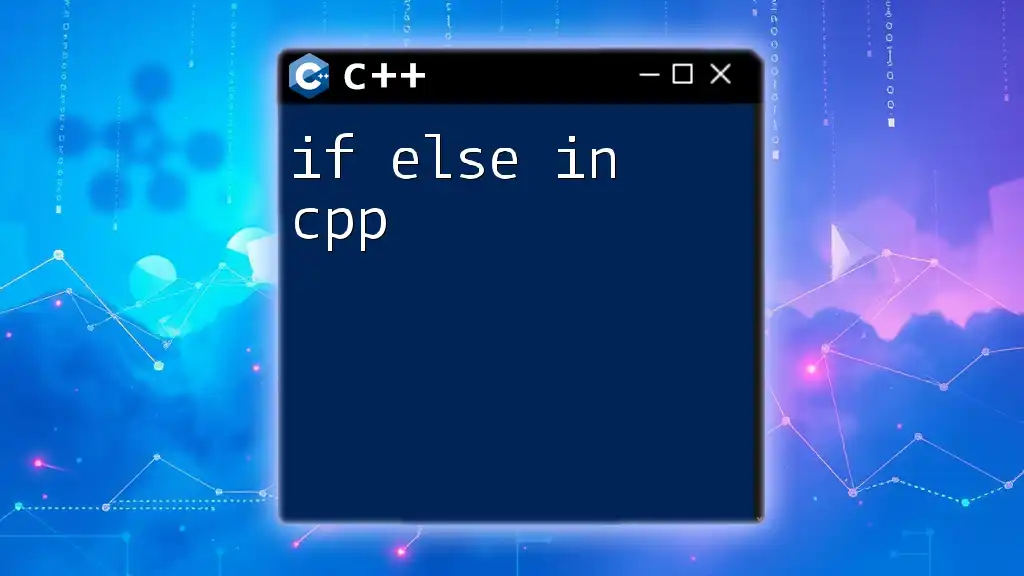
FAQs about For Each in C++
What is the difference between for each and range-based for loop?
While often used interchangeably, the term for each generally refers to the concept of iterating over each element in a collection, while the range-based `for` loop is a specific implementation introduced in C++11 that allows for this iteration.
Can I use for each with custom data structures?
Yes, as long as your custom data structure provides the necessary begin and end methods (or iterators), you can use the for each loop to iterate over its elements.
How does the for each loop handle performance?
The for each loop optimizes the handling of iteration by eliminating the need for manual index management. This can lead to improved performance due to simpler code execution paths and reduced error rates, especially in performance-critical applications.

